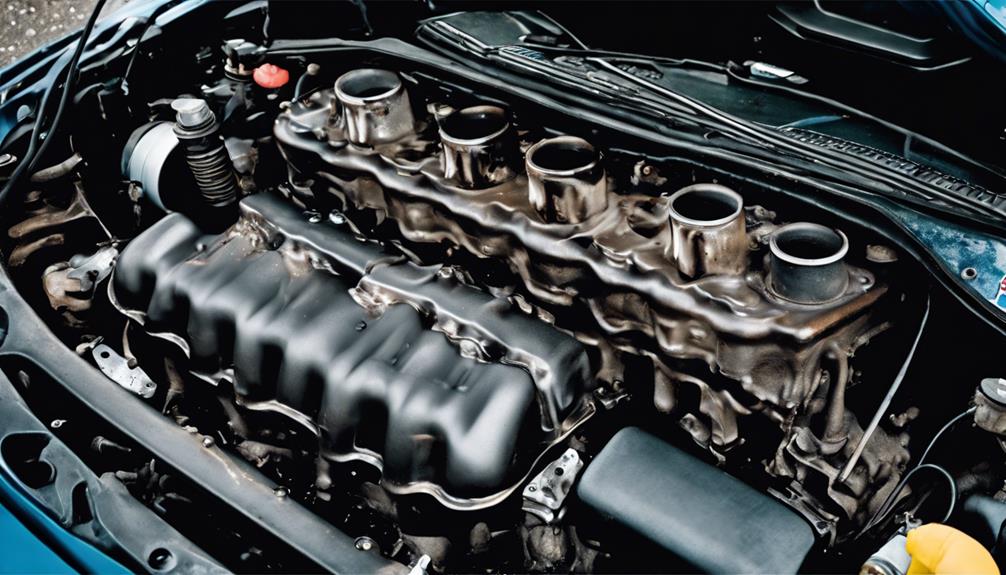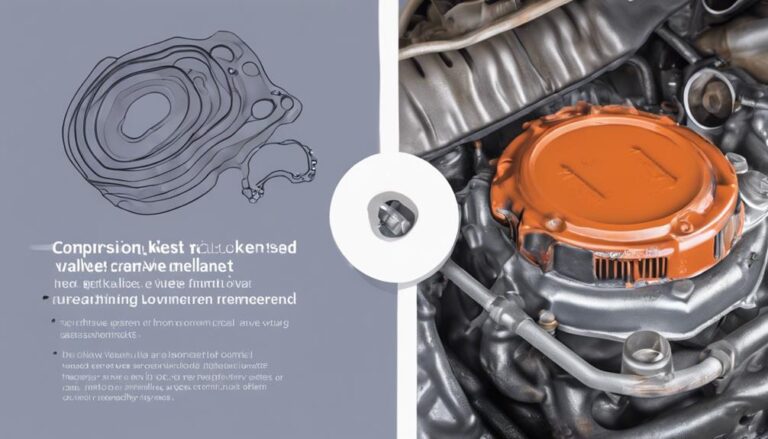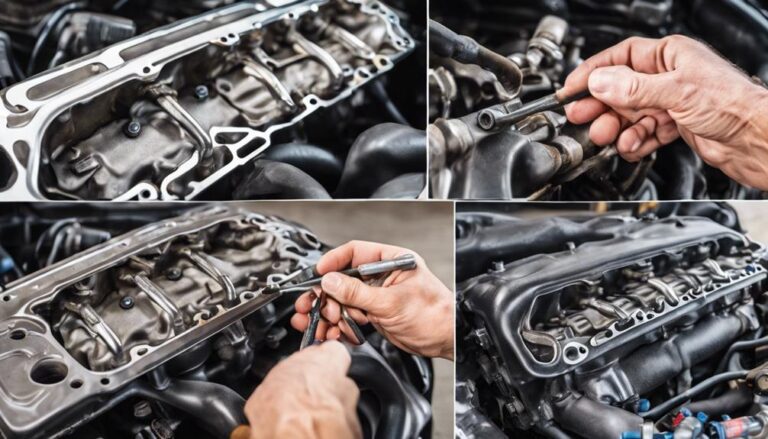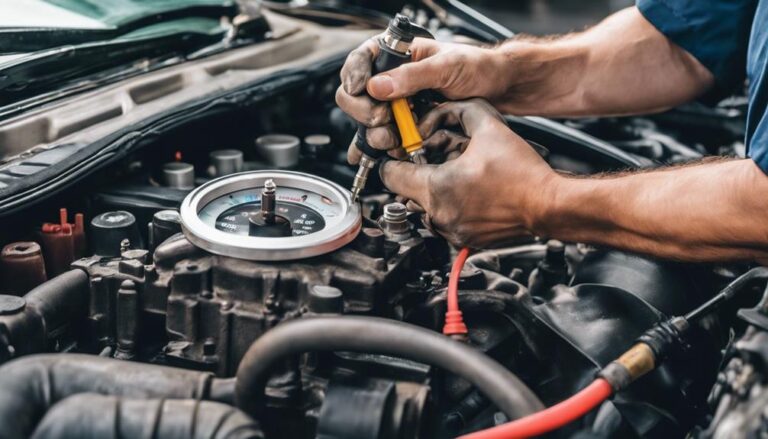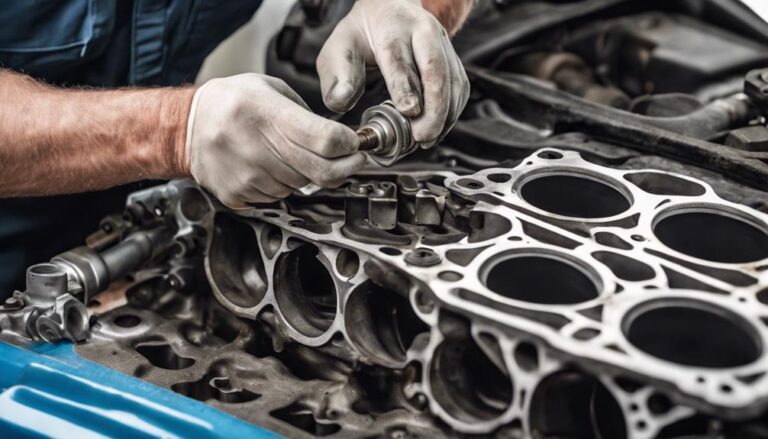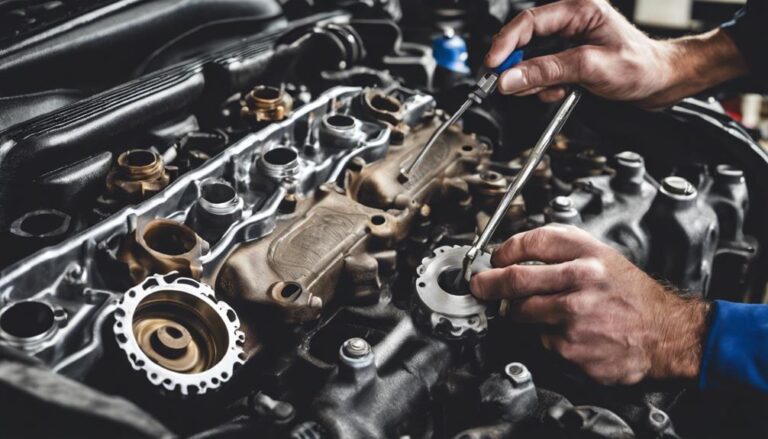What Happens With a Faulty Valve Cover?
When dealing with a faulty valve cover, troubles tend to trickle in unexpectedly. Reduced engine performance, oil leaks, and increased engine noise become unwelcome companions.
But what lies beneath these surface issues is a deeper concern that might make you rethink your next move. The consequences of neglecting this essential component could lead to a chain reaction of problems that you wouldn't want to face.
Key Takeaways
- Decreased engine performance due to oil leaks and improper lubrication.
- Increased risk of engine overheating from oil leakage affecting cooling system efficiency.
- Potential engine component damage from prolonged exposure to heat and decreased lubrication.
- Environmental impact and increased maintenance costs associated with oil leaks from a faulty valve cover.
Reduced Engine Performance
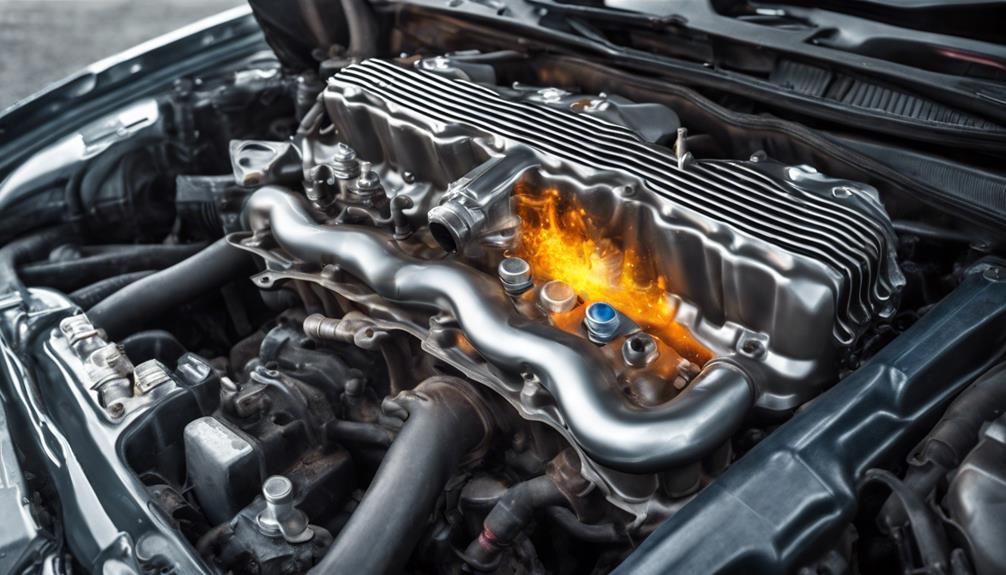
If your vehicle's valve cover is faulty, you may experience a noticeable reduction in engine performance. This can manifest in various ways, impacting both fuel efficiency and engine longevity.
When the valve cover is compromised, it can lead to oil leaks, which may contaminate other engine components and affect the combustion process. This can result in suboptimal fuel efficiency, causing your vehicle to consume more fuel to produce the same amount of power.
In addition, oil leaks due to a faulty valve cover can lead to a decrease in engine longevity. The leaking oil can accelerate wear and tear on engine parts, potentially causing long-term damage if not addressed promptly.
To maintain ideal engine performance, it's essential to address any issues with the valve cover promptly to prevent negative impacts on fuel efficiency and engine longevity. Regular maintenance and inspections can help detect and resolve valve cover problems before they escalate.
Oil Leaks and Consumption
With a faulty valve cover, oil leaks can occur, potentially leading to increased consumption and engine damage if left unchecked. Here's what you need to know:
- Increased Oil Consumption: Oil leaks from a faulty valve cover can result in a drop in oil levels, causing the engine to burn through oil more quickly.
- Environmental Impact: Oil leaks not only lead to wastage but can also harm the environment if the leaked oil contaminates soil or water sources.
- Repair Costs: Addressing oil leaks promptly is essential to prevent further damage. Ignoring the issue can lead to more extensive repairs and higher costs.
- Preventive Measures: Regularly inspecting the valve cover gasket and ensuring it's in good condition can help prevent oil leaks, reducing the risk of increased oil consumption and environmental harm.
Taking action to address oil leaks promptly not only helps maintain your engine's health but also minimizes repair costs and environmental impact.
Increased Engine Noise
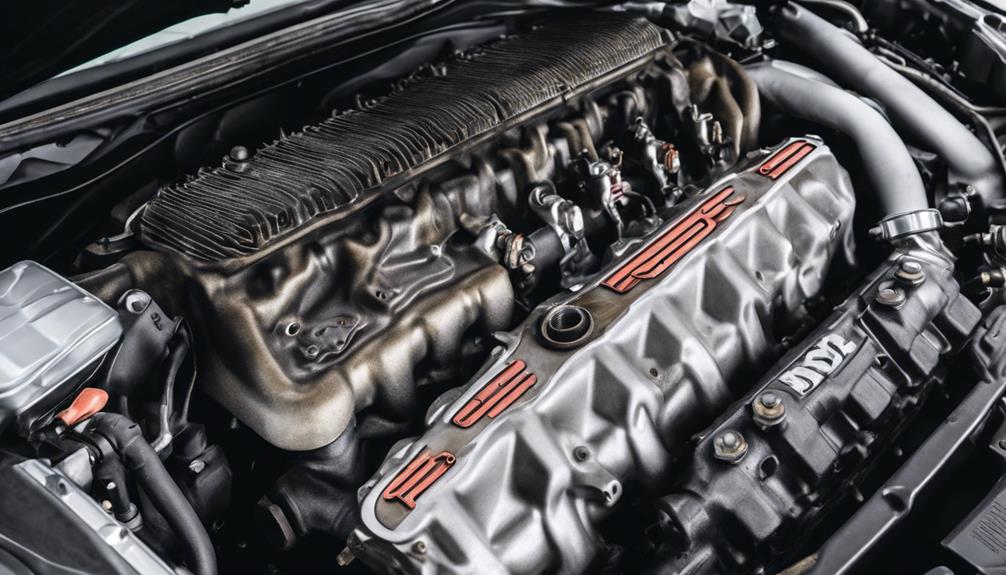
Increased engine noise can be a sign of potential issues within the vehicle's internal components. When a faulty valve cover leads to increased engine noise, it can indicate problems such as improper lubrication, loose components, or worn-out parts. Addressing these issues promptly is important to prevent further damage to your engine.
| Soundproofing Solutions | Maintenance Tips | |
|---|---|---|
| 1. Check for gaps in the vehicle's insulation materials. | 1. Regularly inspect and replace worn-out engine components. | |
| 2. Install sound-deadening materials such as mats or foams. | 2. Keep up with oil changes to make sure proper lubrication. | |
| 3. Use acoustic barriers to reduce noise transmission. | 3. Tighten loose components to reduce vibrations and noise. | |
| 4. Consult a mechanic for professional diagnosis and repairs. | ||
| 5. Consider upgrading to higher-quality engine parts. |
Risk of Engine Overheating
A faulty valve cover can lead to the risk of engine overheating due to potential oil leaks and reduced cooling efficiency. When the valve cover is faulty, it can disrupt the proper functioning of the engine's cooling system, ultimately putting your engine at risk of overheating. Here are some key points to bear in mind:
- Oil Leaks: Oil leaks resulting from a faulty valve cover can lead to a decrease in oil levels. Low oil levels can cause increased friction and heat within the engine, contributing to overheating.
- Cooling System Efficiency: A faulty valve cover can impact the cooling system's ability to dissipate heat effectively. Reduced cooling efficiency can result in the engine running hotter than usual, leading to overheating.
- Regular Maintenance: To prevent the risk of engine overheating due to a faulty valve cover, it's important to perform regular maintenance checks. Inspect the valve cover for any signs of damage or leaks and address them promptly.
- Cooling System Flushing: Regularly flushing the cooling system can help maintain its efficiency and prevent overheating issues caused by a faulty valve cover. Flushing removes debris and contaminants that can impede cooling.
Potential Damage to Engine Components
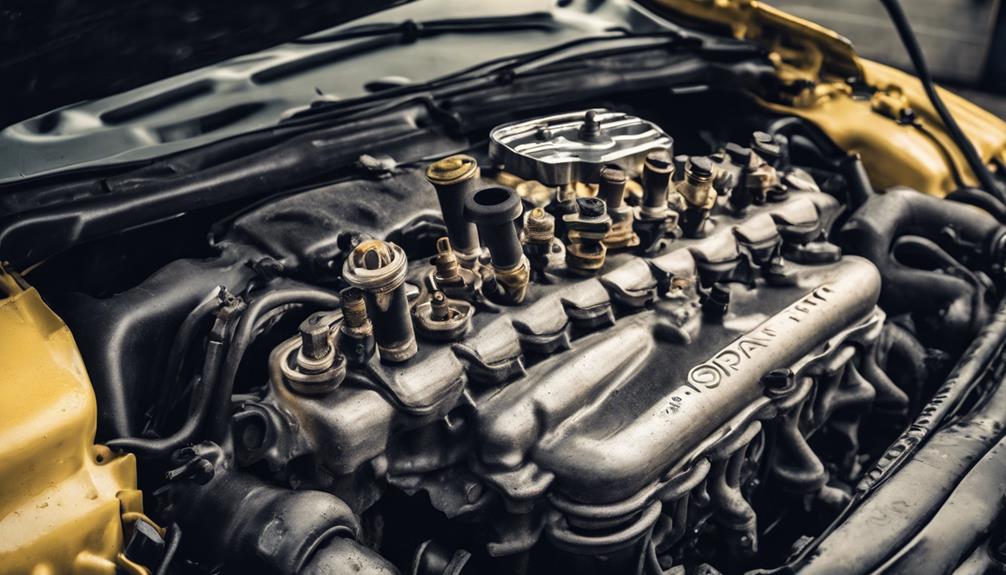
Potential damage to engine components arises from the prolonged exposure to heat caused by a faulty valve cover. When the valve cover gasket fails to seal properly, it leads to oil leaks. These leaks allow oil to escape from the engine, which can result in decreased lubrication. Without adequate lubrication, friction between moving parts increases, leading to accelerated wear and potential damage to critical components such as camshafts, lifters, and valves.
Moreover, a faulty valve cover can also contribute to engine misfires. The leaking oil can seep into spark plug tubes, contaminating the spark plugs and causing them to malfunction. This disruption in the combustion process can lead to misfires, reduced engine performance, and even potential damage to the catalytic converter.
Frequently Asked Questions
Can a Faulty Valve Cover Cause a Check Engine Light to Come On?
A faulty valve cover can trigger a check engine light, signaling potential issues. Repair costs vary but typically involve replacing the valve cover gasket or entire cover assembly. Ignoring this can lead to engine damage, making timely attention essential.
Is It Safe to Continue Driving With a Faulty Valve Cover, or Should It Be Repaired Immediately?
You should prioritize safety and address a faulty valve cover promptly to avoid driving risks and potential long-term effects. It's important to repair it right away to prevent any further complications.
What Are Some Common Signs That Indicate a Faulty Valve Cover Needs to Be Replaced?
If you notice oil leaks or experience engine overheating, it's time to replace that faulty valve cover. Don't ignore the signs; addressing them promptly guarantees your vehicle runs smoothly and prevents potential damage.
How Often Should Valve Cover Gaskets Be Replaced to Prevent Issues?
To prevent issues, valve cover gaskets should be replaced every 60,000 miles. DIY saves money, but professional repair guarantees accuracy. The average cost for a replacement is $150-$400, depending on the vehicle model.
Are There Any Preventative Measures That Can Be Taken to Avoid Valve Cover Problems in the Future?
To prevent valve cover problems, prioritize regular maintenance. Check for leaks and make sure the gasket is intact. Monitor oil levels and quality. Promptly address any issues to maintain best engine performance and prevent costly repairs.
Conclusion
So, it seems like you've got a faulty valve cover on your hands. With reduced engine performance, oil leaks, increased noise, and the risk of overheating, things aren't looking too good.
But hey, at least you've got potential engine damage to look forward to. Time to get that valve cover fixed before things really heat up.

